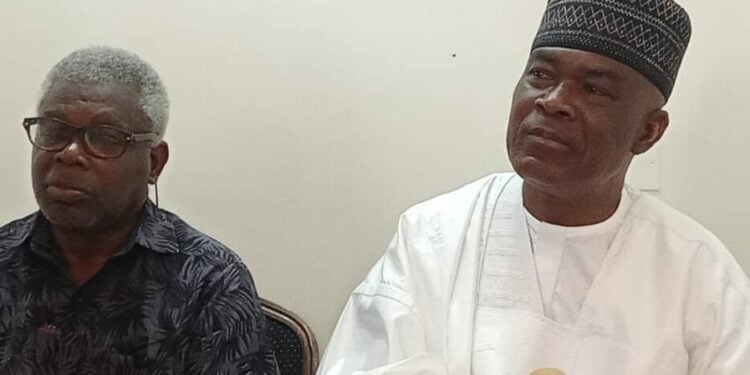The group National Solidarity Movement (TNSM) has expressed concern that the actions of some labour unions in the ongoing dispute between the Petroleum Tanker Drivers (PTD) and the Dangote Group could undermine President Bola Ahmed Tinubu’s economic reform agenda.
The group warned that the unions’ threat of a nationwide strike could disrupt the economy and cause hardship for millions of Nigerians.
Speaking at a press briefing in Abuja yesterday, TNSM President, Mohammed Sani Akwashiki, and National Secretary, Solomon Ikegwuru, said the disagreement between PTD and Dangote Group over the operations of Dangote’s truck fleet has implications for job creation and national economic stability.
Group noted that Dangote recently invested in 10,000 trucks to boost the distribution of essential products nationwide, a move expected to create 20,000 driving jobs and benefit thousands of households.
“This initiative can potentially enhance distribution nationwide and create much-needed jobs. However, the disagreement over conditions for drivers could hinder progress if not carefully resolved,” Akwashiki said.
The group urged all parties to engage in dialogue to avoid escalating tensions, adding that a nationwide strike would further strain the economy and negatively affect ordinary Nigerians.
“We call on labour leaders to consider the wider impact of their actions and work with stakeholders to find a peaceful resolution,” Ikegwuru said.
TNSM commended the Federal Ministry of Finance, the Ministry of Labour, the Office of the National Security Adviser, and security agencies for their ongoing efforts to mediate the dispute.
The group also called on the Downstream Petroleum Regulatory Authority to strengthen its oversight to prevent similar conflicts in the future.
Highlighting broader economic challenges, TNSM noted that the Tinubu administration has been trying to stabilise the economy, including addressing Nigeria’s foreign debt obligations to international lenders and partners.
The group acknowledged that past projects, especially in the railway sector, have faced operational challenges, such as breakdowns and derailments. It urged the government to prioritise quality control and infrastructure maintenance.
“We believe these reforms are starting to show results, including a more stable exchange rate. It is important for all stakeholders to give the ongoing economic reforms a chance to succeed,” Akwashiki said.
The Tinubu National Solidarity Movement reaffirmed its commitment to supporting policies aimed at economic growth and urged labour unions, businesses, and government agencies to collaborate in the national interest.



